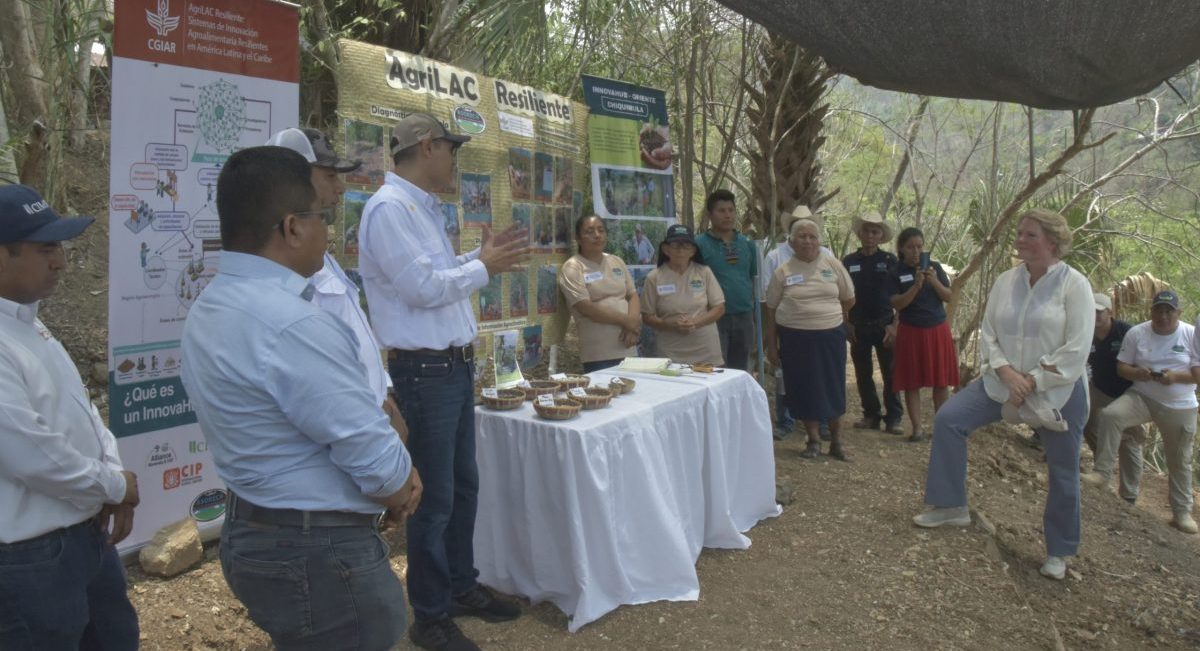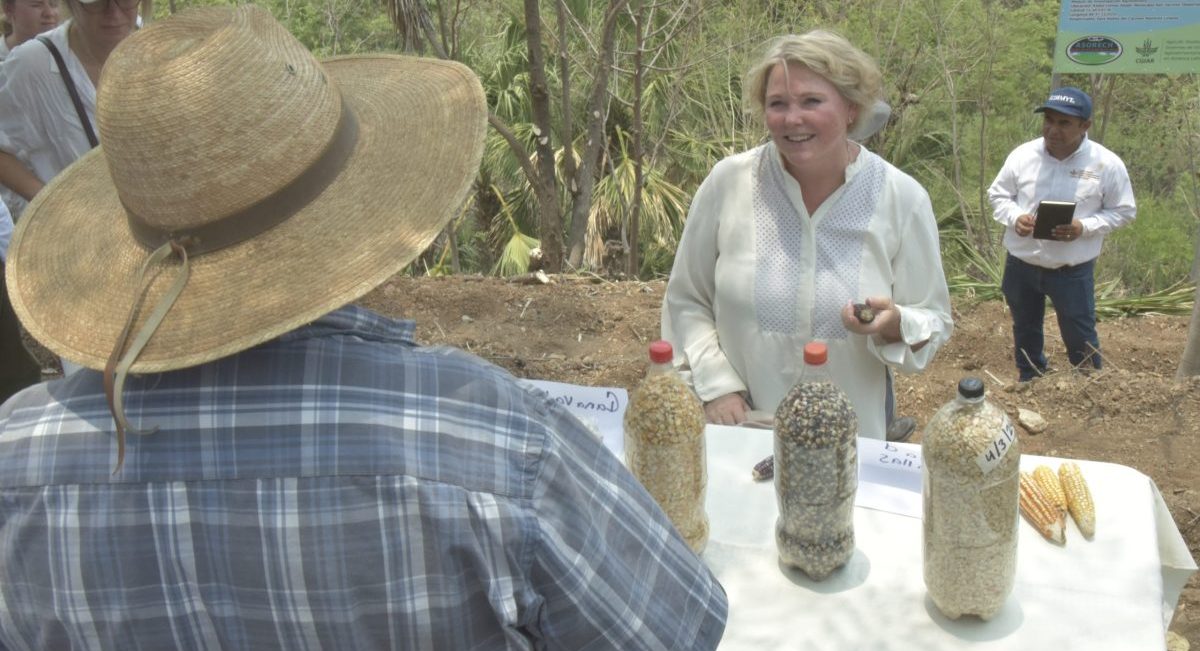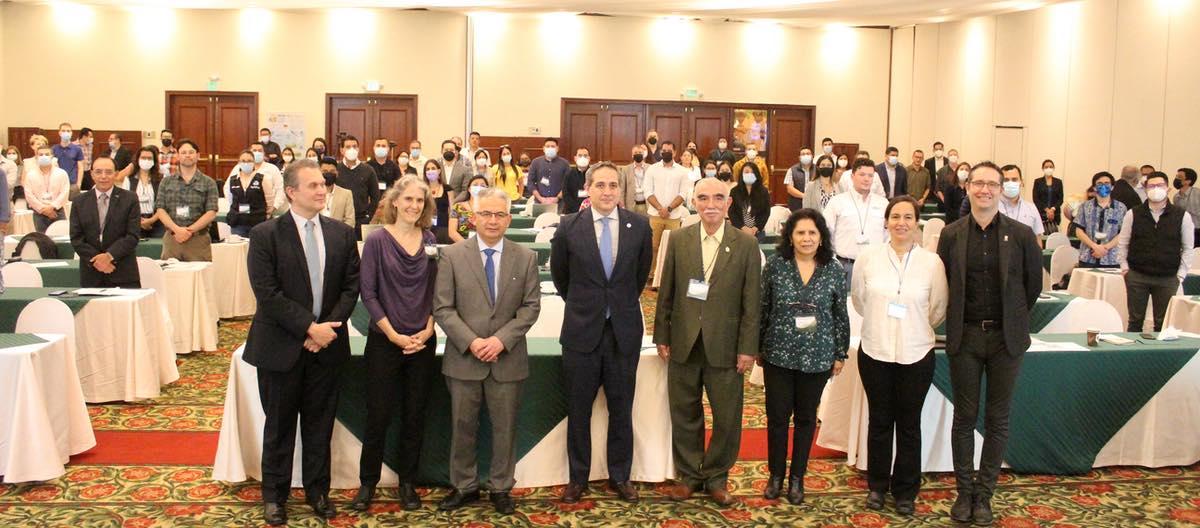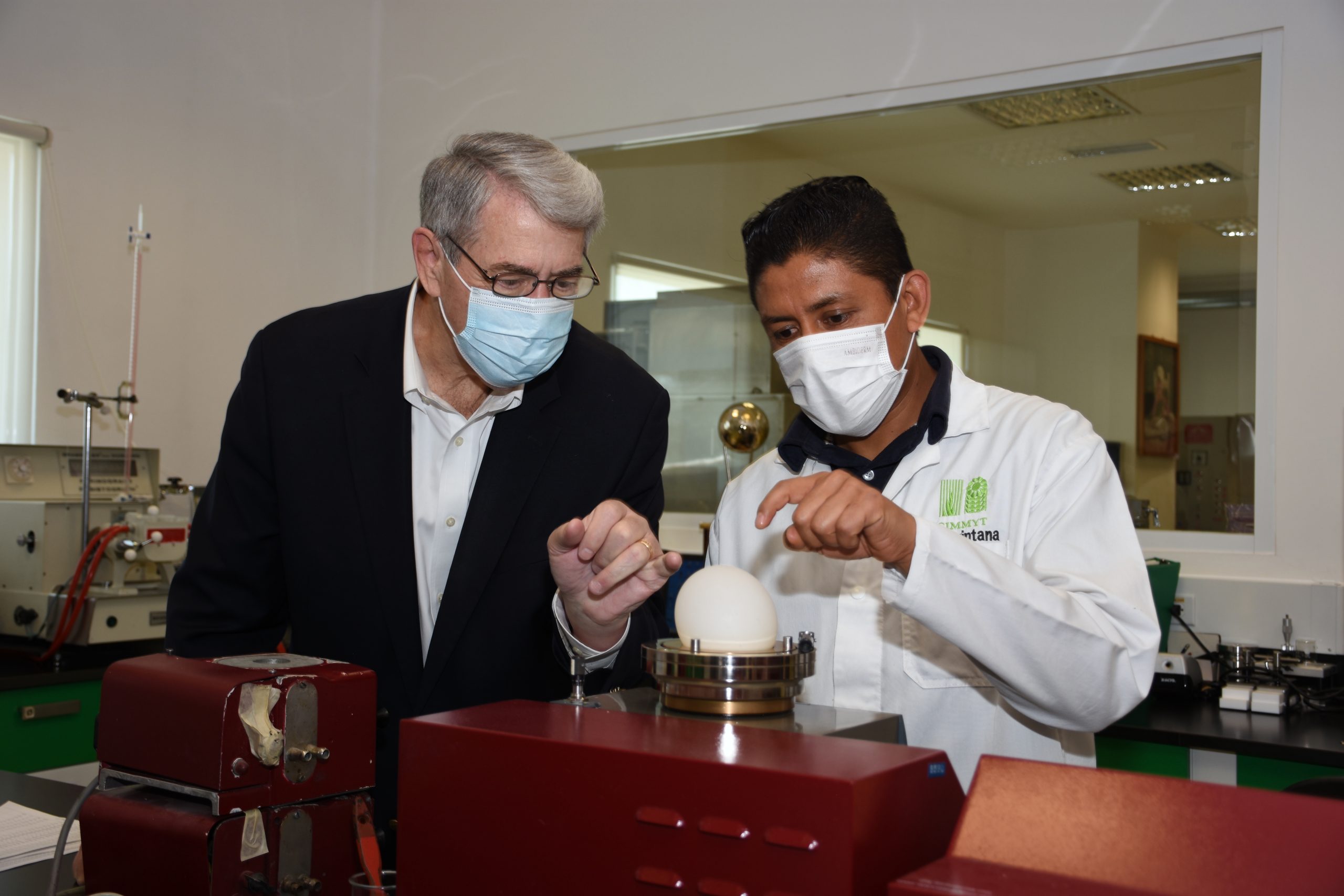
The visit of Anne Beathe, Norway’s Minister of International Development, and Ragnhild Imerslund, Norway’s Ambassador to Mexico and Central America, to the Lomas Abajo demonstration module in San Jacinto, Chiquimula, Guatemala—part of the InnovaHubs promoted by CIMMYT and its collaborators in that country through the AgriLAC Resiliente initiative—on June 5.
The presence of the minister and the ambassador highlights the Norwegian government’s support for initiatives like CGIAR’s AgriLAC Resiliente, which shares a common vision of Latin American regional development within a framework of triangular cooperation between the Norwegian Embassy, the Mexican Agency for International Development Cooperation (AMEXCID), and CIMMYT.
This cooperation framework seeks to strengthen the innovation management model known as InnovaHub because it promotes constant interaction between farmers and their local allies, with whom technicians and researchers work hand-in-hand on the plots that are part of the physical infrastructure, such as the modules visited by the Norwegian government representatives, which serve as spaces for co-learning and validation of sustainable practices and technologies for the region.
The work and actions in Guatemala are part of a methodology for accelerating agricultural innovation built on CIMMYT’s successful experiences in Mexico. In this sense, CIMMYT, together with other CGIAR Research Centers in the region—the Alliance of Bioversity International and CIAT, the International Potato Center (CIP), and the International Food Policy Research Institute (IFPRI)—lead AgriLAC Resiliente and, through collaboration with various regional partners, have succeeded in establishing and operating two InnovaHubs in Guatemala—one in the eastern region and another in the western region—where organizations like ADIPAZ and ASORECH work closely in disseminating sustainable practices suited to each agricultural and sociocultural context.
For the Norwegian government, which seeks to strengthen ties with the governments and societies of Mexico and Central America, the InnovaHubs model is ideal for connecting not only with national governments but also with local governments, producers, and a wide range of strategic actors.
The Norwegian government, which, together with CIMMYT, already promotes Agriculture for Peace—drawing on the legacy of Norman Borlaug to promote peaceful and resilient societies through sustainable and inclusive agriculture—considers agriculture a vital means to promote social stability in rural areas as it supports income generation and contributes to political stability, hence its interest and support for the InnovaHubs’ efforts in promoting innovative and sustainable agriculture.

During their visit to Guatemala, Minister Beathe and Ambassador Imerslund were accompanied by Jelle Van Loon, associate director of CIMMYT’s Sustainable Agrifood Systems Program, the operational team of AgriLAC in Guatemala; Elder Cardona, mayor of San Jacinto; as well as representatives of Alliance of Bioversity International and CIAT, ADIPAZ, and ASORECH, with whom they toured InnovaHubs facilities and engaged in a lively dialogue with various producers participating in AgriLAC Resiliente, particularly with a group of women farmers who shared their experiences on how the knowledge gained through the initiative has led to empowerment and better living conditions.
During the visit, the context of Chiquimula, the Chortí region, and the Dry Corridor was also explained, highlighting the challenges and limitations; the activities carried out with AgriLAC, including research platforms, post-harvest processes, and training; ongoing agronomic research, proposals for families, agronomic management programs, and crop diversification, Agroclimatic Technical Tables (MTAs), among other topics.
Finally, it was emphasized that, with the triangular cooperation between the Norwegian Embassy, AMEXCID, and CIMMYT, actions are planned for CIMMYT to train field advisors from El Salvador, Guatemala, and Honduras, with the aim of continuing the efforts of Agriculture for Peace for the benefit of the countries in the region.

 Nutrition, health and food security
Nutrition, health and food security 